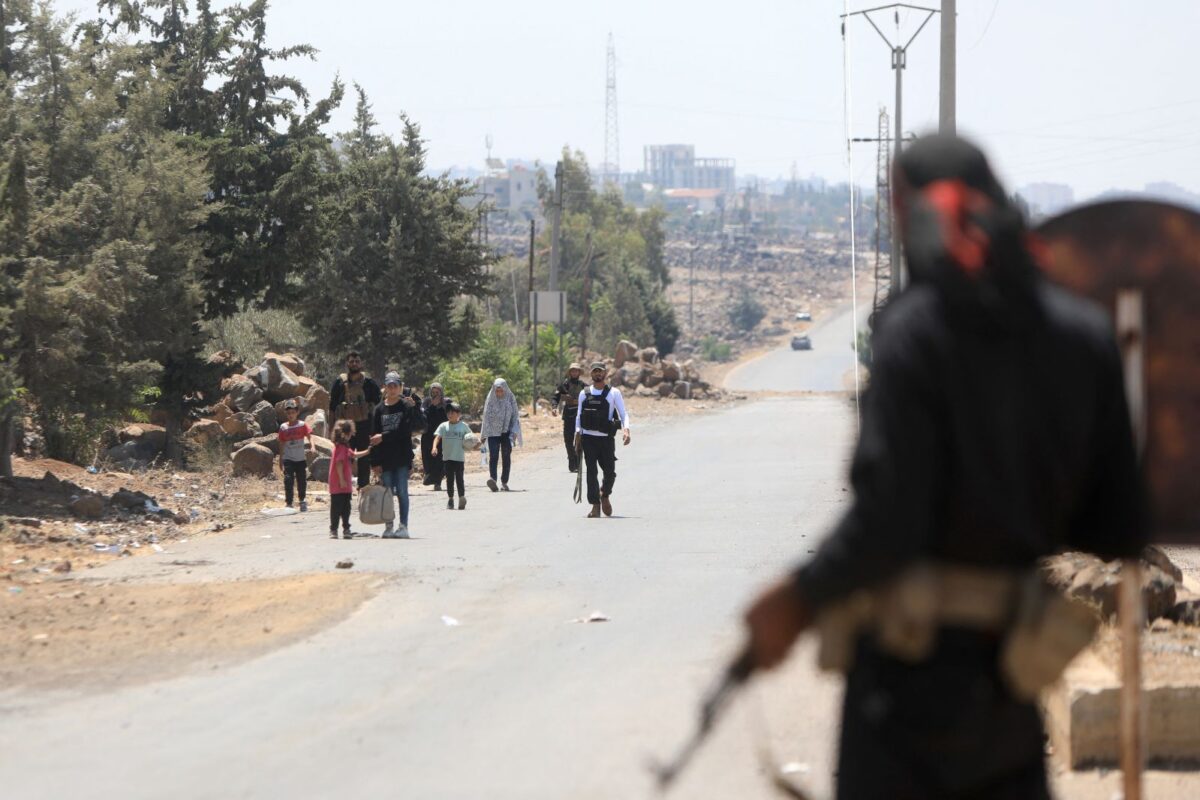
The recent bloodshed in Suwayda—marked by clashes between the Druze of Jabal al-Arab, neighboring Bedouin tribes, and forces loyal to President Ahmad al-Sharaa—has exposed the hollow nature of statehood, not only in Syria but across the Arab Levant. These events serve as a stark reminder of the dangers of dismissing the foundational principles of modern statehood—chief among them, the citizen’s right to life, freedom, and dignity.
The campaign to discipline and subjugate the Druze community of Suwayda goes far beyond the use of excessive force. It embodies the authoritarian impulse deeply ingrained in regional regimes, wherein legitimacy is forged not through consent, but by fire and blood. The Suwayda massacres also highlight the perils of militarization and the weaponization of historical memory—especially sectarian memory—for short-term, unjust political gain.
What Ahmad al-Sharaa’s regime is doing to the Druze echoes the Ottoman campaigns that targeted the community for more than a century and a half. My late mentor, historian Abdul Rahim Abu Husayn, captured these tragic cycles in his seminal work “Crafting the Myth and the Long Rebellion.” He exposed the many myths surrounding both the Druze and Maronite communities and illustrated how Ottoman military expeditions—originally political attempts to suppress rebellion and weaken Mamluk alliances—transformed into jihadist campaigns against alleged heresy and apostasy.
Like Ottoman commander Ibrahim Pasha, who razed Druze villages, paraded severed heads through Damascus, and looted religious texts to justify genocide, Sharaa’s forces have desecrated sacred Druze sites and used the excuse of non-Sunni identity to rationalize murder. The purpose of such comparisons is not to stoke sectarian tension, but to emphasize a truth that fragile states in our region refuse to acknowledge: Political dissent does not equal existential threat. Diversity—especially when expressed by minorities—is not an insult to the ruling class or to the majority. Rather, it is the key to a resilient political and social order.
In recent days, international media have scrambled to explain who the Druze are, why they have clashed with the Bedouins, and what ancient tensions still shape the violence in Suwayda. But while the Druze are often treated as a minority and the brutality against them draws justifiable horror, violence in any form—against any Syrian group—must be condemned. Our moral compass demands we denounce the displacement and bloodshed faced by the Bedouin with the same intensity that we voice outrage over the targeting of the Druze.
To Sunni hardliners who champion Sharaa as a “strongman,” let this be a warning: today’s silence or complicity in violence against so-called heretics may one day come back to haunt you. Tomorrow, you may be next in line—targeted for simply objecting to the domination of Hay’at Tahrir al-Sham or another armed faction seeking to control your fate.
In the Lebanese context—perhaps even more crucial—the atrocities committed against Druze civilians in Suwayda, and the ensuing support from some Sunni circles for Sharaa’s campaign, have deeply shaken sectarian coexistence. This is hardly surprising in a country where the state is absent, and political elites have consistently failed to uphold a culture of law, accountability, or shared national purpose.
While emotional solidarity across sectarian lines and borders is expected, translating it into transnational armed action is not. We saw this dangerous overreach when Hezbollah dispatched fighters to Syria to defend Bashar al-Assad and the “Tehran-Beirut axis.” Lebanese Druze, no matter how outraged, must not repeat that mistake, nor should their Sunni compatriots.
What exacerbates the crisis is the Lebanese state’s shameful silence. Not a single official statement of condolence or condemnation was issued after Lebanese civilians were killed in Suwayda. Their blood, it seems, is too cheap to warrant mention. Instead of acting as a moral and national compass, Lebanon’s ruling class busied itself with spin and spectacle during the visit of U.S. envoy Tom Barrack—desperately trying to project an image of sovereignty and stability. But the reality is one of denial, detachment, and contempt for the pain of its own people abroad.
Ultimately, betting on arms—whether wielded by minorities or majorities, in Lebanon or Syria—in the absence of a genuine national project is a suicidal impulse. It is a test of conscience and political maturity. Those who fail it risk not only defeat—but demise.
This article originally appeared in Nidaa al-Watan
Makram Rabah is the managing editor at Now Lebanon and an Assistant Professor at the American University of Beirut, Department of History. His book Conflict on Mount Lebanon: The Druze, the Maronites and Collective Memory (Edinburgh University Press) covers collective identities and the Lebanese Civil War. He tweets at @makramrabah







